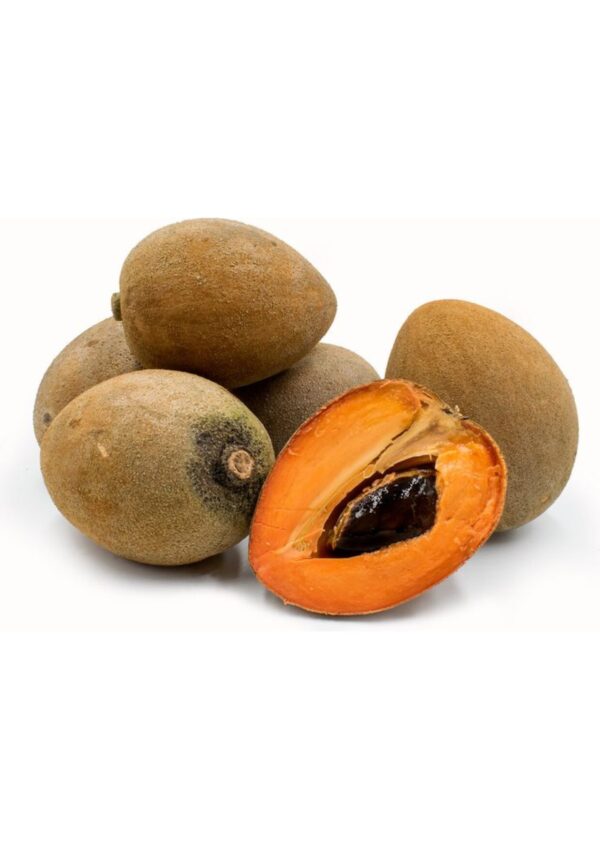Support: +0413 490 1050

Sapota
Manilkara Sapota, popularly known as chikoo or Sapota, is a long-lived, evergreen tree native to southern Mexico, Central America, and the Caribbean. The Indian Sapota exporter ships tonnes of these fruits abroad each year. Owing to the multiple uses and health benefits of Sapota, its export from India has been steadily increasing over the years. This growing demand has created a lucrative business opportunity for local farmers and vendors to expand their operations and successfully enter the international market.
Sapota Varieties We Export
The Sapota exporter in India exports several premium-quality varieties of Sapota such as Kalipatti, Cricket Ball, CO.1, CO.2, and more. All exported products strictly adhere to health and safety standards to meet international market requirements. The major varieties of Sapota exported from India include:
Kalipatti — Kalipatti Sapota is mainly cultivated in Maharashtra, Gujarat, and North Karnataka. The plant features broad, thick leaves and produces oblong fruits. On average, each tree yields around 350-400 fruits.
Cricket Ball — This variety is widely grown in Tamil Nadu, Karnataka, Maharashtra, West Bengal, and Andhra Pradesh. The fruits are large, round, sweet, and have a granular pulp texture.
CO.1 — Grown in Tamil Nadu, CO.1 is a hybrid variety developed from the Cricket Ball and Oval varieties. It begins bearing fruit around 4 years after planting. The fruits are large, oblong, sweet, and fleshy.
CO.2 — Also cultivated in Tamil Nadu, the CO.2 variety features medium-sized trees with oblong fruits. The average fruit weight ranges from 125 to 150 grams, with a total soluble solids (TSS) content of 23%.
PKM.1 — PKM.1 is a popular table-purpose variety in Tamil Nadu. The fruits are medium-sized, rich in sugars, and weigh around 80 grams on average, with a TSS of 23%.
Pilipatti — Primarily grown in Maharashtra and Gujarat, the Pilipatti variety is an important export variety. The fruits are heavy, weighing between 400-500 grams.
Pala — Found mainly in Andhra Pradesh and Tamil Nadu, the Pala variety is high-yielding. The fruits are oval or egg-shaped, with thin skin and a rich flavor.
CO.3 — Originating from Tamil Nadu, CO.3 is a crossbreed between the Cricket Ball and Vavivalasa varieties. It starts bearing fruit from the 4th year onward. The fruits are light brown, oblong, and sweet, with an average annual yield of around 157 kg per tree.
INGREDIENTS
| Nutrients | Calories - 83 calories, Dietary Fiber - 5 g, Total Carbohydrate - 20 g |
| Protein | 0.4g |
| Vitamins | Vitamin A, Vitamin C |
| Minerals | Calcium, Iron, Magnesium |
| Fat | -- |





